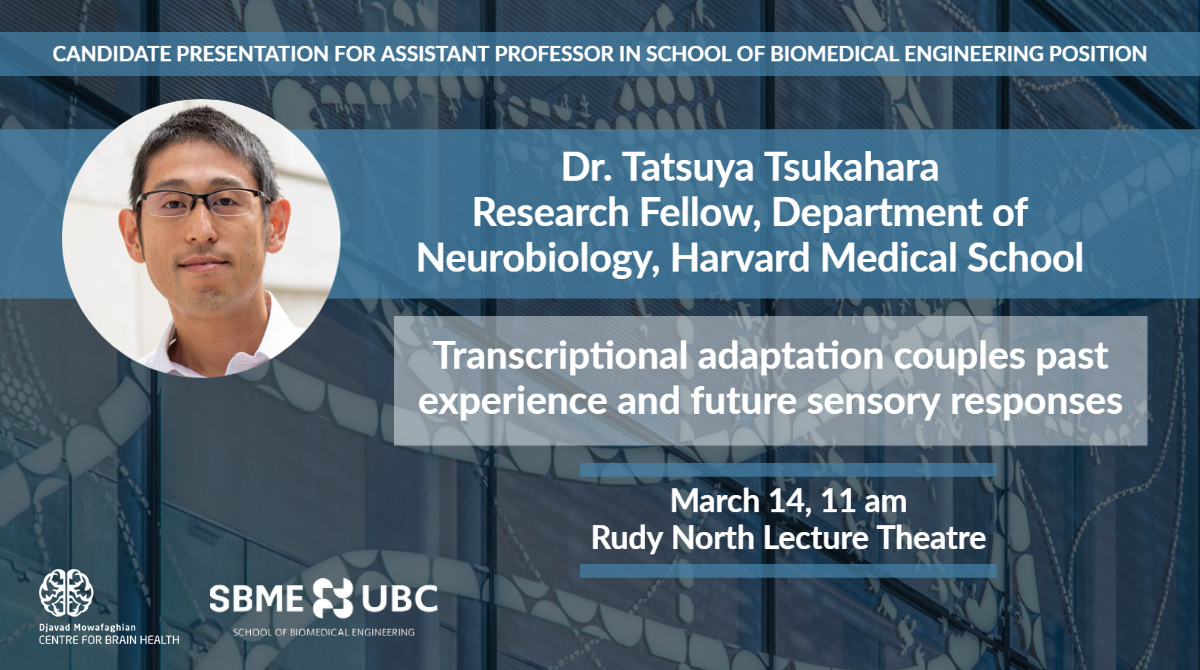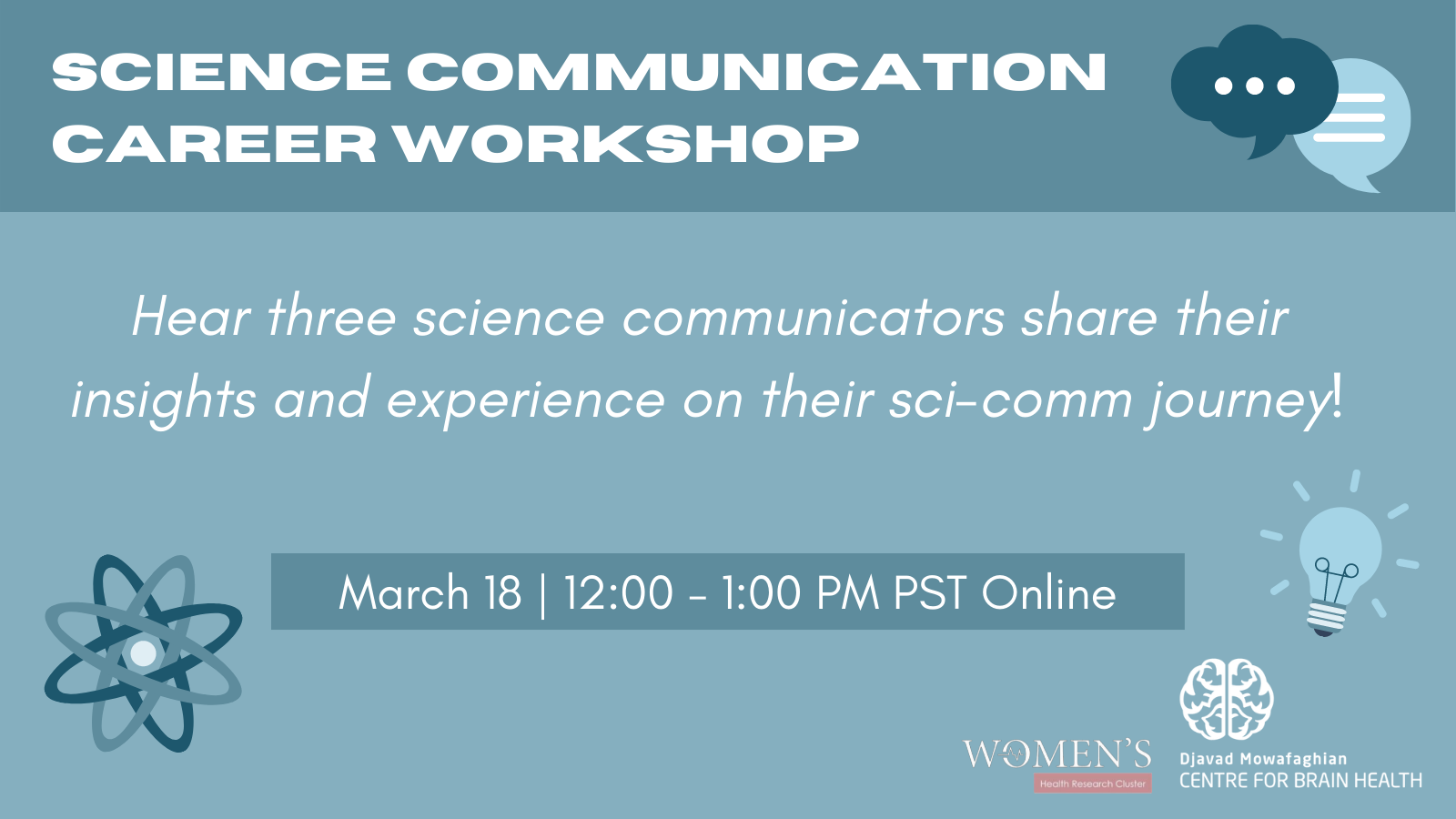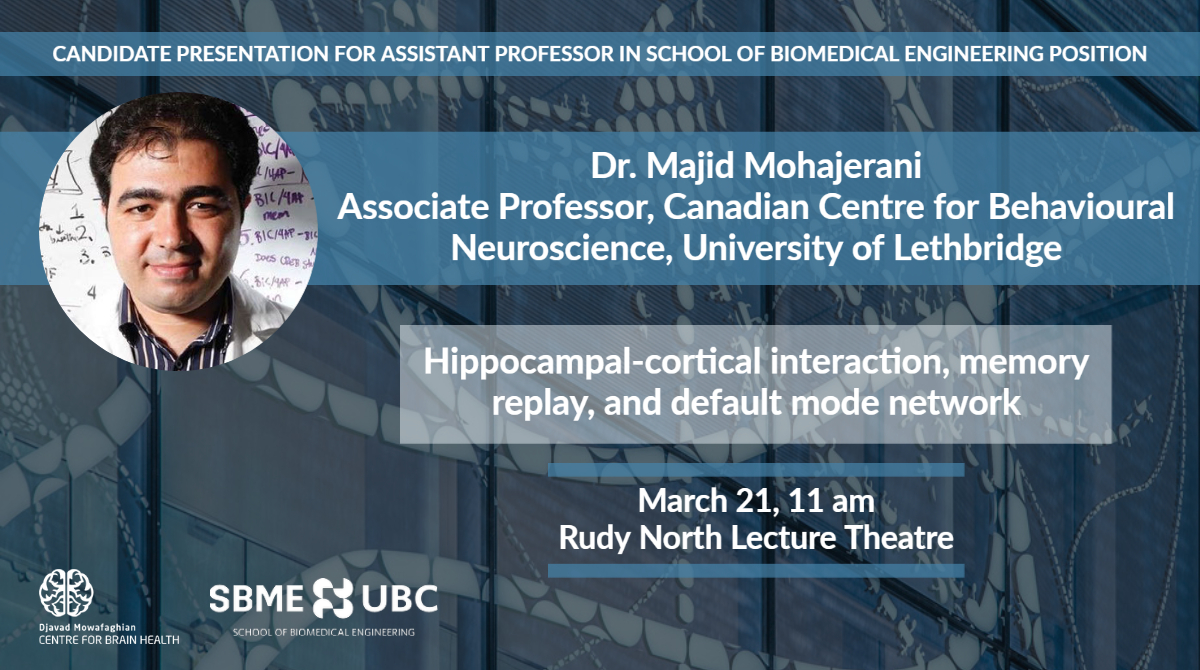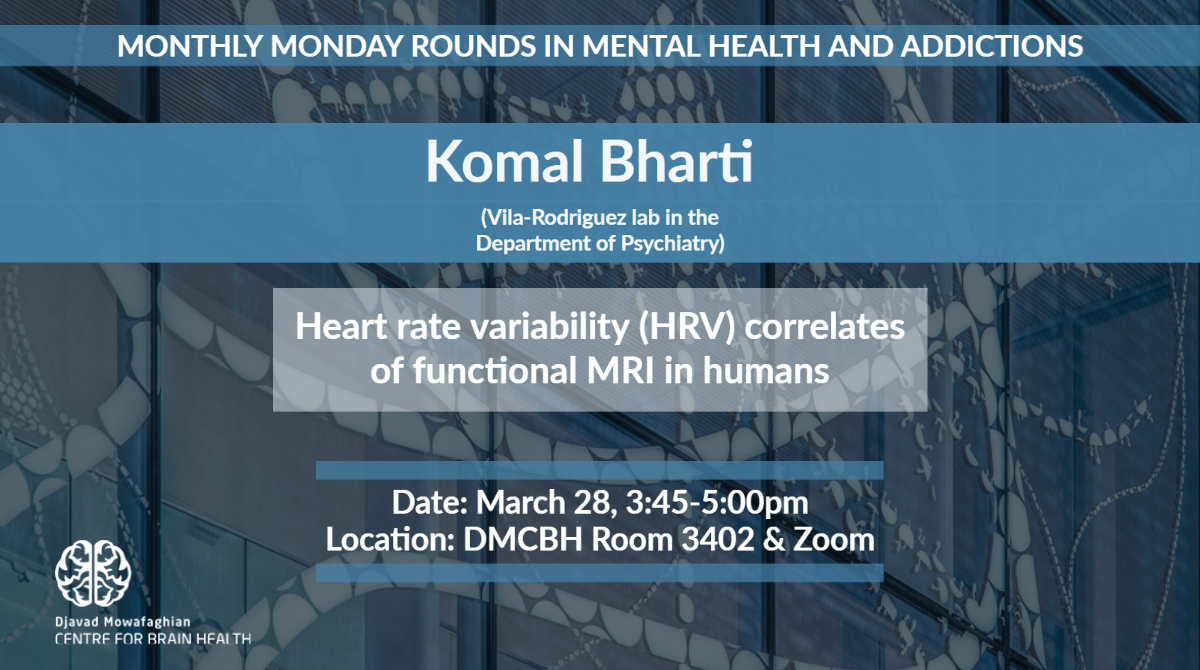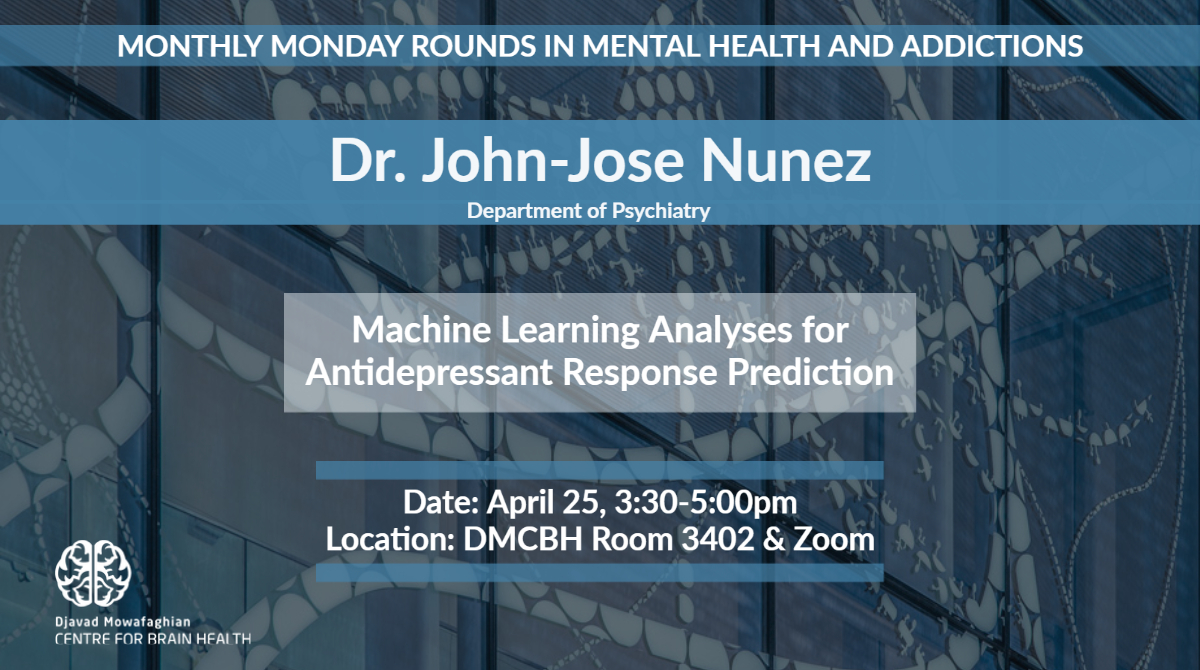Tatsuya Tsukahara candidate presentation
Rudy North Lecture Theatre, Djavad Mowafaghian Centre for Brain Health 2215 Wesbrook Mall, VancouverTo interpret the sensory world and select appropriate actions, animals must distinguish persistent background stimuli from novel sensory cues. Sensory adaptation is a neural mechanism that enables such filtering of environmental stimuli, and a fundamental feature of sensory systems. Previous studies have shown that the brain flexibly adapt sensory responses to repetitive stimuli through synaptic […]
Learn More
